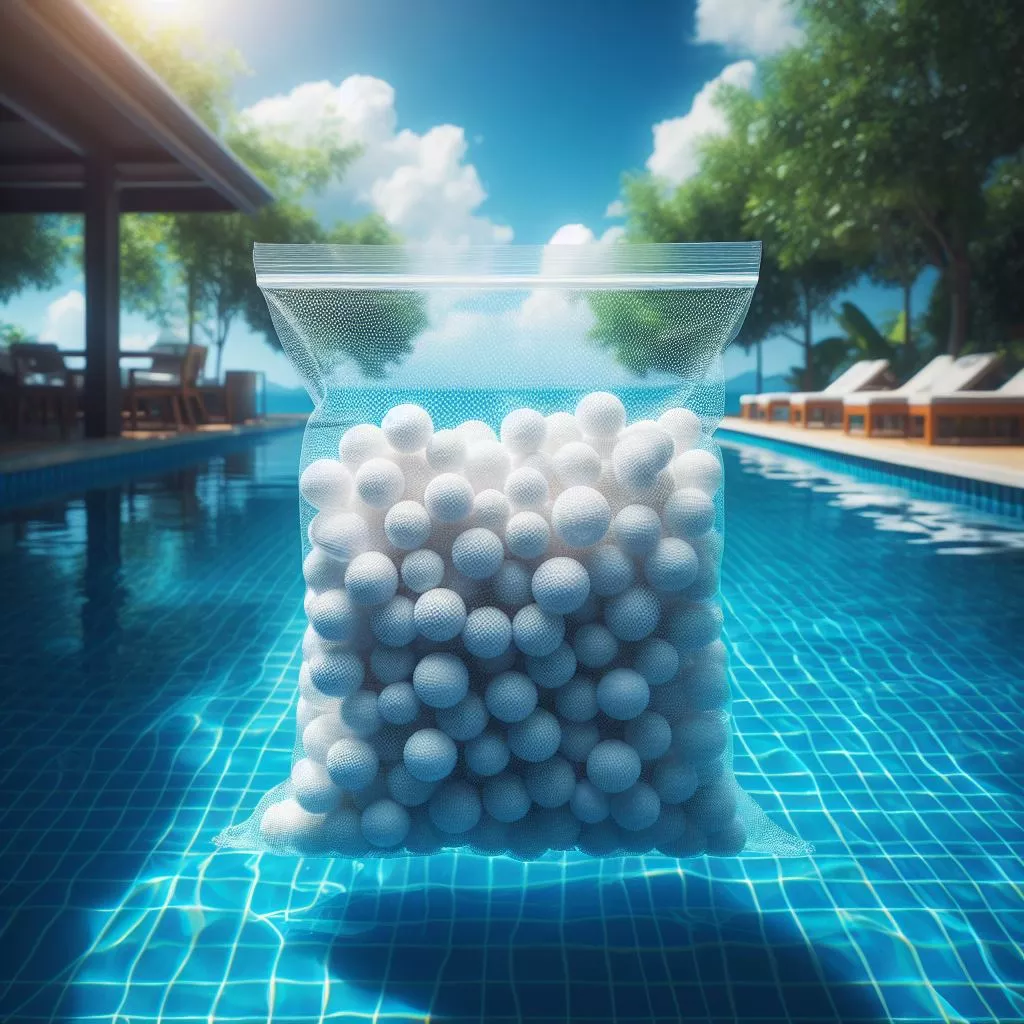In recent years, nanotechnology has emerged as a promising solution for enhancing various industries, including pool maintenance and filtration. Pool filter balls, integrated with nanotechnology, represent a revolutionary approach to water treatment, offering improved efficiency, longevity, and sustainability compared to traditional filtration methods. In this comprehensive analysis, we will delve into the applications, benefits, challenges, and future prospects of nanotechnology in pool filter balls.
Understanding Nanotechnology in Pool Filter Balls
Nanotechnology involves the manipulation of matter at the nanoscale, typically ranging from 1 to 100 nanometers. Pool filter balls infused with nanotechnology utilize nanoscale materials and structures to achieve superior filtration performance. These innovative balls are designed to remove impurities, bacteria, and other contaminants from pool water more effectively than conventional filtration media.
Enhanced Filtration Efficiency
One of the key advantages of nanotechnology in pool filter balls is its ability to enhance filtration efficiency. The nanoscale pores and structures within the filter balls provide a larger surface area for capturing contaminants, allowing for more thorough filtration. Additionally, nanomaterials can target specific types of impurities, such as organic compounds or heavy metals, improving overall water quality.
Self-cleaning Properties
Nanotechnology enables pool filter balls to possess self-cleaning properties, reducing the need for frequent maintenance and replacement. The nanoscale surface of the balls repels dirt, debris, and biofilm, preventing them from adhering to the filtration media. As a result, the filter balls remain cleaner for longer periods, maintaining optimal filtration performance with minimal intervention.
Antibacterial and Antimicrobial Effects
Nanoparticles incorporated into pool filter balls exhibit antibacterial and antimicrobial properties, further enhancing water quality and safety. These nanoparticles can inhibit the growth of bacteria, algae, and other microorganisms within the filtration system, reducing the risk of waterborne illnesses and biofilm formation. By incorporating nanotechnology, pool owners can ensure cleaner and healthier swimming environments.
Longevity and Durability
Pool filter balls engineered with nanotechnology are known for their exceptional longevity and durability. The robust nature of nanomaterials allows the filter balls to withstand harsh chemical treatments, high flow rates, and frequent backwashing cycles without degrading. Unlike traditional filter media that may deteriorate over time, nanotechnology-enhanced filter balls maintain their effectiveness for extended periods, resulting in cost savings and reduced environmental impact.
Challenges and Considerations
While nanotechnology offers numerous benefits for pool filtration, several challenges and considerations must be addressed:
Cost: Nanotechnology-enhanced pool filter balls may initially incur higher costs compared to traditional filter media. However, the long-term benefits, including improved efficiency and longevity, justify the investment.
Environmental Impact: The production and disposal of nanomaterials raise concerns about their potential environmental impact. Proper disposal practices and adherence to regulatory guidelines are essential to mitigate environmental risks.
Regulatory Approval: Nanotechnology in pool filtration may be subject to regulatory scrutiny and approval due to concerns regarding nanomaterial safety and efficacy. Manufacturers must comply with applicable regulations and standards to ensure consumer safety.

Future Prospects and Innovations
The integration of nanotechnology in pool filter balls holds promising prospects for future advancements:
Smart Filtration Systems: Nanotechnology-enabled sensors and responsive materials can be integrated into filtration systems to enable real-time monitoring and adaptive filtration capabilities.
Nanomembranes: Development of nanomembranes with selective permeability can enhance filtration efficiency while allowing for the removal of specific contaminants, such as microplastics and pharmaceutical residues.
Sustainable Nanomaterials: Continued research into sustainable nanomaterials and manufacturing processes will address concerns regarding environmental impact and promote the widespread adoption of nanotechnology in pool filtration.
Conclusion
Nanotechnology represents a transformative approach to pool filtration, offering enhanced efficiency, longevity, and sustainability. Pool filter balls infused with nanotechnology demonstrate superior filtration performance, self-cleaning properties, and antibacterial effects, contributing to cleaner and healthier swimming environments. While challenges such as cost and regulatory approval exist, ongoing innovation and research hold promise for addressing these concerns and unlocking the full potential of nanotechnology in pool maintenance. As the pool industry continues to evolve, nanotechnology will undoubtedly play a pivotal role in shaping the future of water treatment and filtration.

